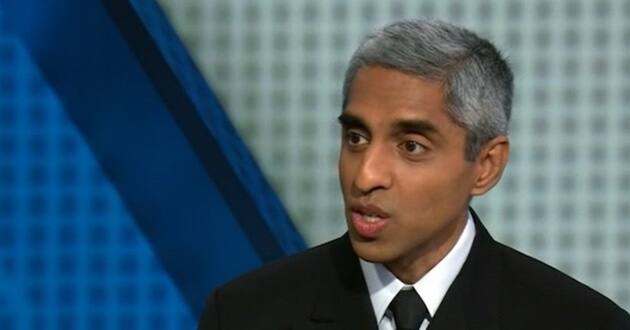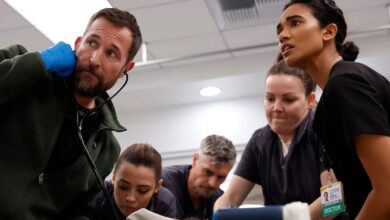Surgeon General warns social media affects mental health of minors

Social media use among minors can severely damage mental health, U.S. Surgeon General Vivek Murthy warned this week.
“The most common question parents ask me is, ‘is social media safe for my kids?’” he said. “The answer is that we don’t have enough evidence to say it’s safe, and in fact, there is growing evidence that social media use is associated with harm to young people’s mental health. Children are exposed to harmful content on social media, ranging from violent and sexual content to bullying and harassment. And for too many children, social media use is compromising their sleep and valuable in-person time with family and friends.”
Some 95 percent of minors between 13 years old and 17 years old report using social media, while 40 percent of children between 8 years old and 12 years old said the same despite minimum age requirements for the platforms. The advisory added that frequent use of technology is associated with changes in the development of the amygdala, the region of the brain responsible for emotional learning and behavior, as well as the prefrontal cortex, which is responsible for impulse control and the moderation of social behavior.
READ: The call for age requirements for social media
Members of Congress have noted the addictive properties of social media services and their deleterious effects on mental health. One lawmaker described TikTok, the most popular social media network for young people, as “digital fentanyl,” a reference to the addictive characteristics of the limitless stream of vertical videos offered by the platform. Children and teenagers spent an average of 99 minutes per day on TikTok as of two years ago, far exceeding the amount of time spent on other rivals.
U.S. officials have noted that Chinese authorities seem to understand the effects of TikTok. Children under 14 years old who use the version of TikTok available in China are permitted only 40 minutes of screen time each day and cannot access the platform at night.
The Surgeon General’s Advisory offers recommendations to help ensure children and their families have the information and tools necessary to make social media safer for children:
- Policymakers can take steps to strengthen safety standards and limit access in ways that make social media safer for children of all ages, better protect children’s privacy, support digital and media literacy, and fund additional research.
- Technology companies can better and more transparently assess the impact of their products on children, share data with independent researchers to increase our collective understanding of the impacts, make design and development decisions that prioritize safety and health – including protecting children’s privacy and better adhering to age minimums – and improve systems to provide effective and timely responses to complaints.
- Parents and caregivers can make plans in their households such as establishing tech-free zones that better foster in-person relationships, teach kids about responsible online behavior and model that behavior, and report problematic content and activity.
- Children and adolescents can adopt healthy practices like limiting time on platforms, blocking unwanted content, being careful about sharing personal information, and reaching out if they or a friend need help or see harassment or abuse on the platforms.
- Researchers can further prioritize social media and youth mental health research that can support the establishment of standards and evaluation of best practices to support children’s health.
Medical professionals have been nearly unamimous in support of the findings.
Jack Resneck Jr., M.D., President, American Medical Association responded with a written statement saying, “With near universal social media use by America’s young people, these apps and sites introduce profound risk and mental health harms in ways we are only now beginning to fully understand. As physicians, we see firsthand the impact of social media, particularly during adolescence – a critical period of brain development.”
Resneck said that we need additional research to help formulate concrete steps “to address concerns and protect the mental health and wellbeing of children and adolescents.
In 2021, Dr. Murthy issued a Surgeon General’s Advisory on Protecting Youth Mental Health – PDF calling attention the crisis. Earlier this month, he released a Surgeon General’s Advisory on Our Epidemic of Loneliness and Isolation – PDF, where he outlined the profound health consequences of social disconnection and laid out six pillars to increase connection across the country, one of which being the need to reform our digital environments. The new Surgeon General’s Advisory on Social Media and Youth Mental Health – PDF is a continuation of his work to enhance the mental health and well-being of young people across the country.
The full Surgeon General’s Advisory can be read here – PDF.
–Dwight Widaman | Metro Voice








